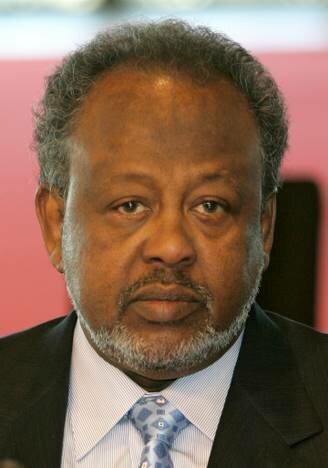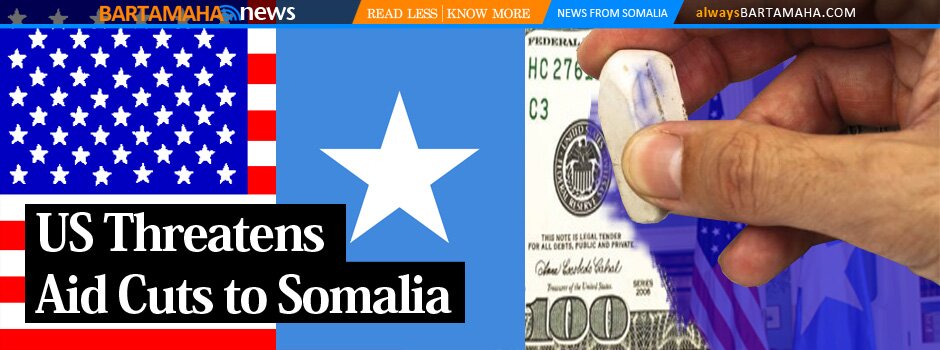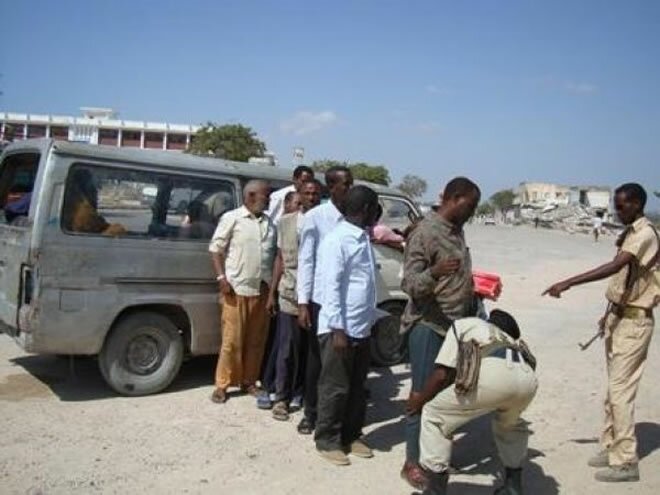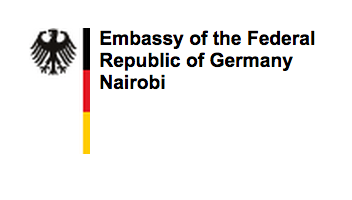INTERVIEW-Djibouti president hints at third term
 DJIBOUTI, March 21 (Reuters) – The president of Djibouti Ismail Omar Guelleh signalled in an interview that he was prepared to run for a third six-year term if lawmakers amend the constitution in the small Horn of Africa nation. The national assembly is expected to decide next week on an extension of presidential terms in office and speculation has surrounded his plans to run for a third mandate. “This is a demand from our population and this will be next year. Let us wait for the outcome of the national commission that is working on the subject,” Guelleh said in an interview on Saturday at the 19th century French colonial presidential palace on the shores of the Indian Ocean. Asked if he would accept the parliament’s decision to approve a third term, he said: “If it’s God’s will.” Guelleh took office in 1999 and his second mandate expires in April 2011. Djibouti, a former French colony which separates Eritrea from Somalia, hosts France’s largest military base in Africa and a major U.S. base. Its port is used by foreign navies patrolling busy shipping lanes off the coast of Somalia to fight piracy. Guelleh said he believed the situation in Somalia was improving. “I think the situation is better than before. There is some sort of fed-up (mood) among the Somali people especially of Mogadishu’s citizens which suffer from this opposition. I think that (President) Sheikh Sharif (Ahmed) will prevail,” he said. Since 2007, fighting between pro-government militia and the Islamist al Shabaab group — which Washington sees as al Qaeda’s proxy in the region — has killed more than 21,000 Somalis and driven 1.5 million from their homes. Ahmed joined a Western-backed peace process and was voted president of Somalia in January 2009 in an election which took place in Djibouti. Guelleh said he was not planning to send more troops to Somalia on top of the 450 Djibouti has pledged to boost a 5,000 strong African Union force there. Relations between Djibouti and neighbouring Eritrea under President Isaias Afwerki remain hostile. The U.N. Security Council imposed sanctions on Eritrea in December, accusing it of destabilising the region by providing funds and arms to Islamist insurgents in Somalia. Eritrea has denied the allegations. “We are now in the process of implementation of the resolution which we hope will make this guy more flexible to the international community,” Guelleh said, referring to Isaias. “He must abide by international law.” Guelleh said he expected Djibouti’s 2010 gross domestic product (GDP) to come in above a 5.4 percent estimate by the International Monetary Fund. “We have not so much been affected by the financial crisis. We hope that there will be an influx of foreign direct investment which will boost our economy. We hope that we will achieve 5.7 or even 6 percent,” he said. Chinese will be Djibouti’s biggest investors next year and in 2012, Guelleh said. “The Chinese will help make the port of Djibouti the biggest hub in this region. That will cost nearly half a billion U.S. dollars,” he said. “We’ll have an electrified railway from Djibouti to Addis Ababa — also by the Chinese. And we’ll have geothermal energy. And we are in discussions with French investors (about) wind farms.”
DJIBOUTI, March 21 (Reuters) – The president of Djibouti Ismail Omar Guelleh signalled in an interview that he was prepared to run for a third six-year term if lawmakers amend the constitution in the small Horn of Africa nation. The national assembly is expected to decide next week on an extension of presidential terms in office and speculation has surrounded his plans to run for a third mandate. “This is a demand from our population and this will be next year. Let us wait for the outcome of the national commission that is working on the subject,” Guelleh said in an interview on Saturday at the 19th century French colonial presidential palace on the shores of the Indian Ocean. Asked if he would accept the parliament’s decision to approve a third term, he said: “If it’s God’s will.” Guelleh took office in 1999 and his second mandate expires in April 2011. Djibouti, a former French colony which separates Eritrea from Somalia, hosts France’s largest military base in Africa and a major U.S. base. Its port is used by foreign navies patrolling busy shipping lanes off the coast of Somalia to fight piracy. Guelleh said he believed the situation in Somalia was improving. “I think the situation is better than before. There is some sort of fed-up (mood) among the Somali people especially of Mogadishu’s citizens which suffer from this opposition. I think that (President) Sheikh Sharif (Ahmed) will prevail,” he said. Since 2007, fighting between pro-government militia and the Islamist al Shabaab group — which Washington sees as al Qaeda’s proxy in the region — has killed more than 21,000 Somalis and driven 1.5 million from their homes. Ahmed joined a Western-backed peace process and was voted president of Somalia in January 2009 in an election which took place in Djibouti. Guelleh said he was not planning to send more troops to Somalia on top of the 450 Djibouti has pledged to boost a 5,000 strong African Union force there. Relations between Djibouti and neighbouring Eritrea under President Isaias Afwerki remain hostile. The U.N. Security Council imposed sanctions on Eritrea in December, accusing it of destabilising the region by providing funds and arms to Islamist insurgents in Somalia. Eritrea has denied the allegations. “We are now in the process of implementation of the resolution which we hope will make this guy more flexible to the international community,” Guelleh said, referring to Isaias. “He must abide by international law.” Guelleh said he expected Djibouti’s 2010 gross domestic product (GDP) to come in above a 5.4 percent estimate by the International Monetary Fund. “We have not so much been affected by the financial crisis. We hope that there will be an influx of foreign direct investment which will boost our economy. We hope that we will achieve 5.7 or even 6 percent,” he said. Chinese will be Djibouti’s biggest investors next year and in 2012, Guelleh said. “The Chinese will help make the port of Djibouti the biggest hub in this region. That will cost nearly half a billion U.S. dollars,” he said. “We’ll have an electrified railway from Djibouti to Addis Ababa — also by the Chinese. And we’ll have geothermal energy. And we are in discussions with French investors (about) wind farms.”
_____
Reuters
Comments
comments
 Calendar
Calendar






































